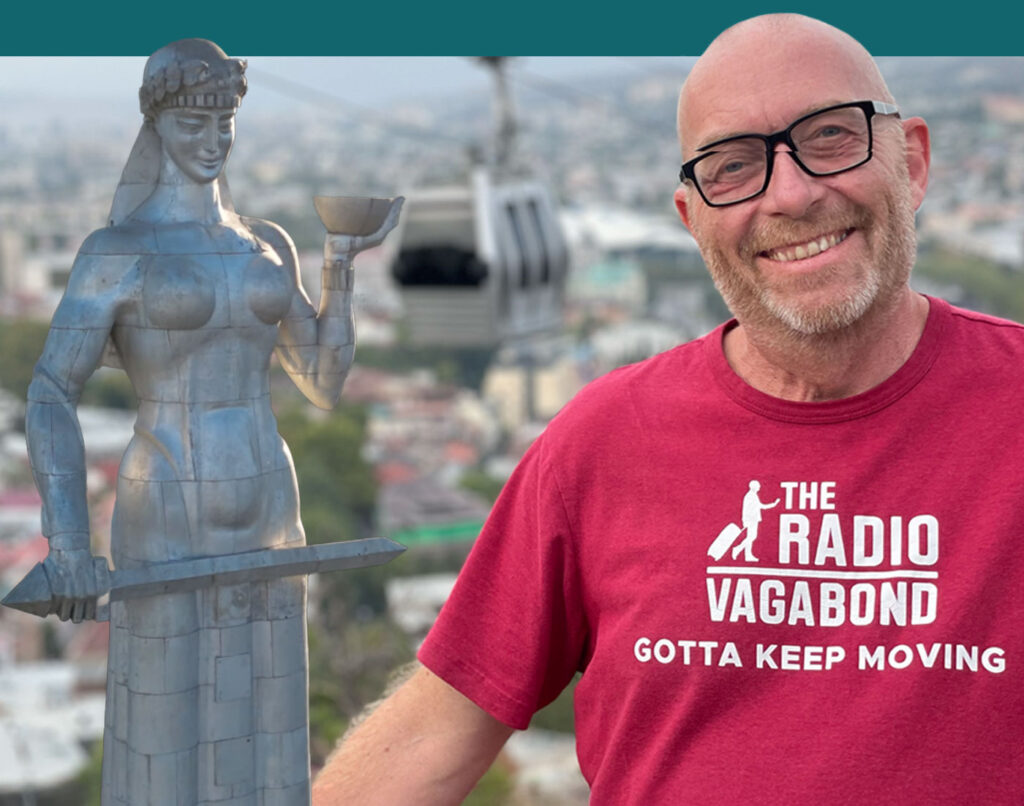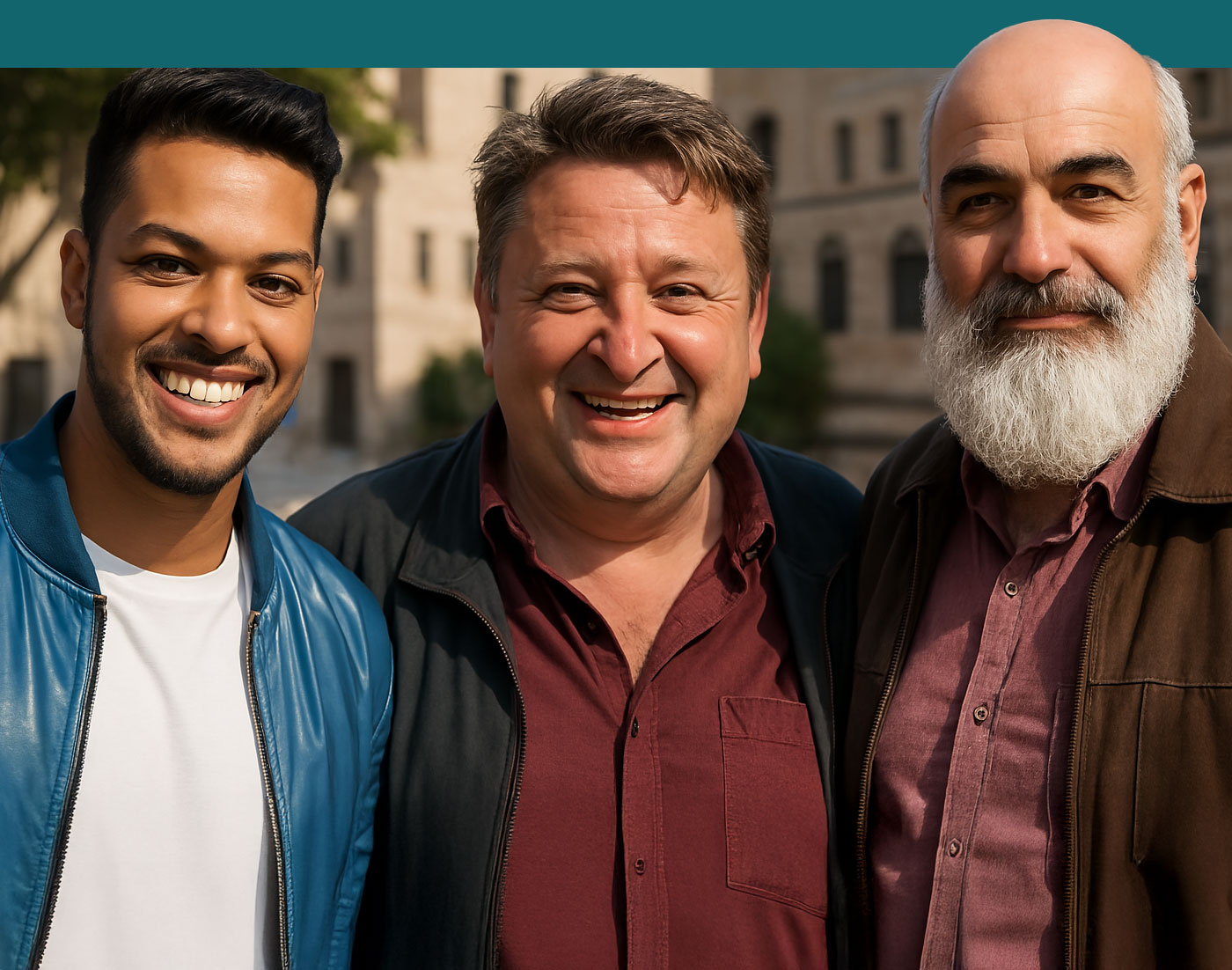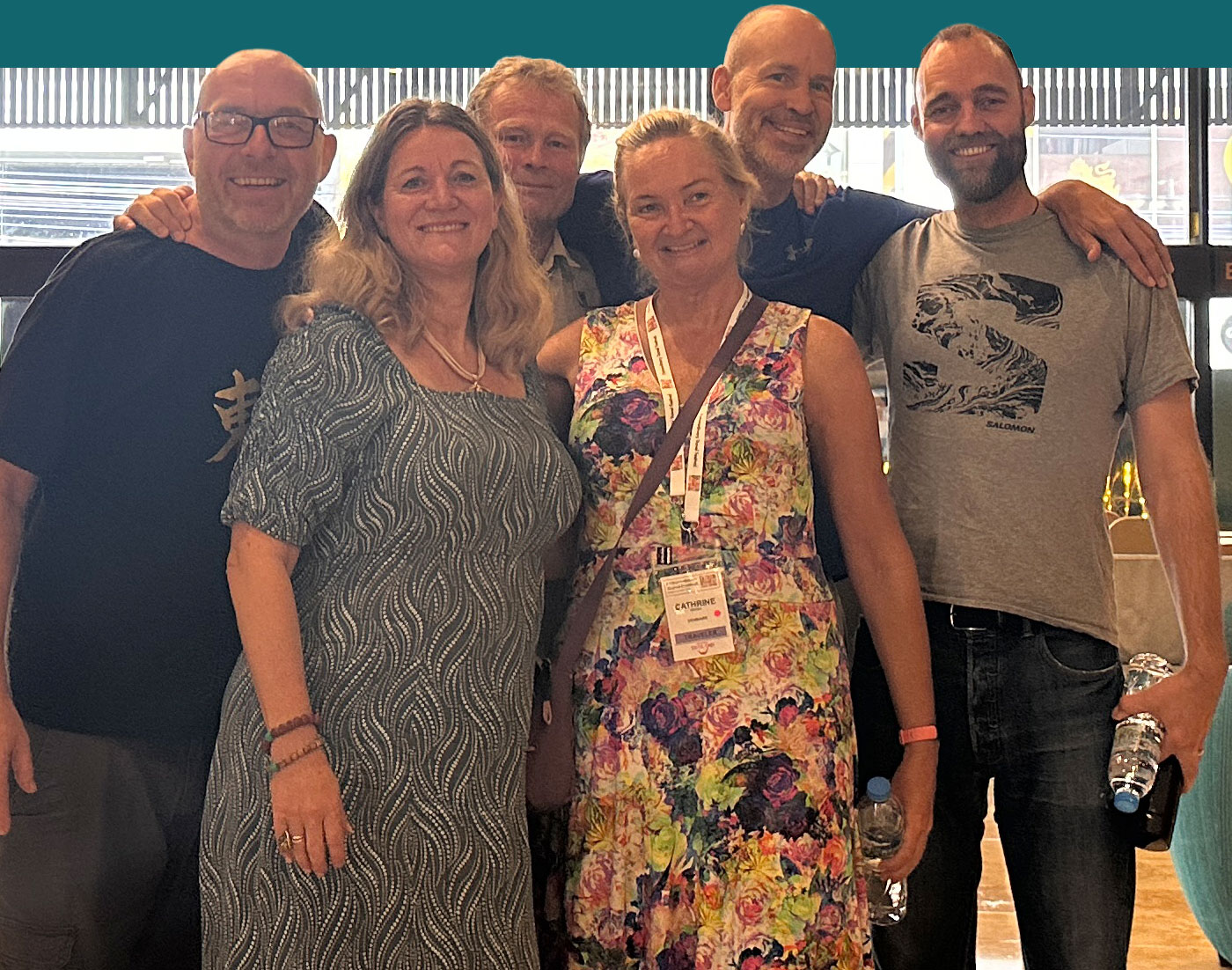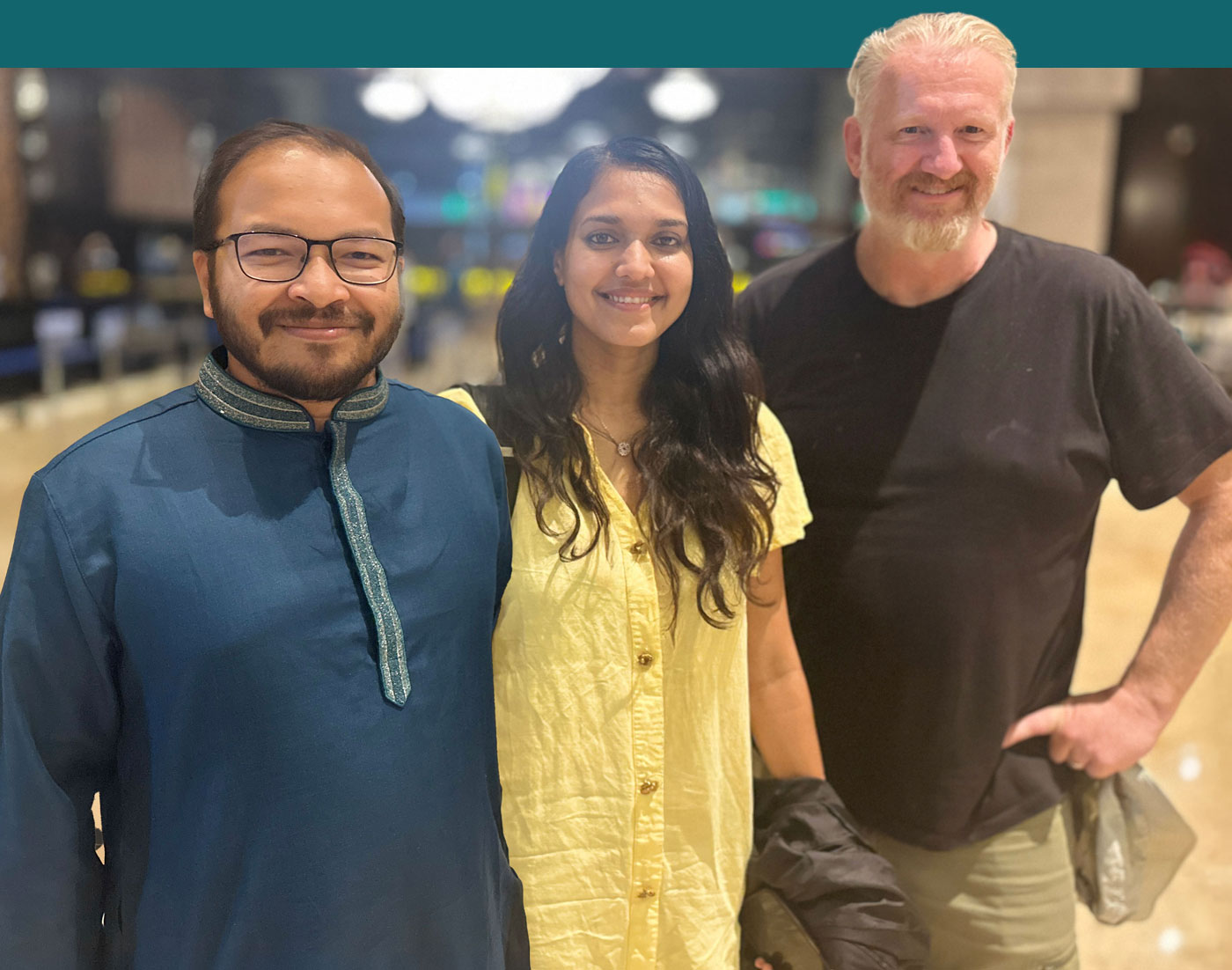კეთილი იყოს თქვენი მობრძანება თბილისში
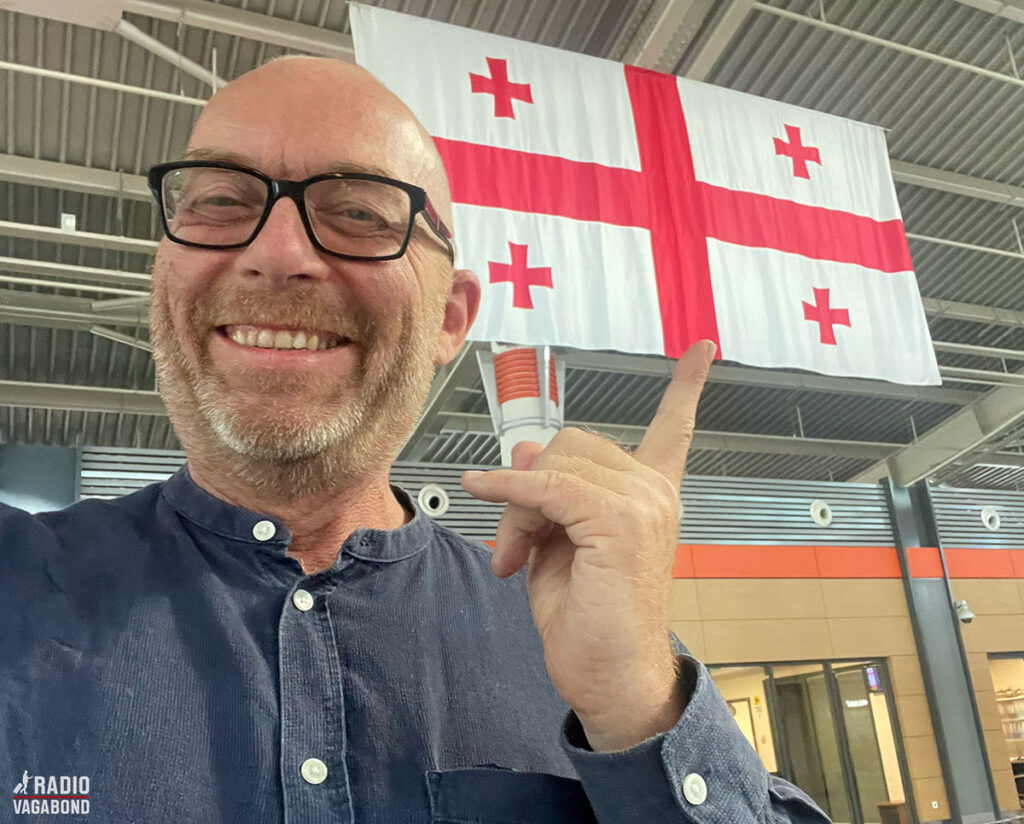
In this episode of The Radio Vagabond, we’re taking a deep dive into Georgia – the country, not the state in the US. This place is still a bit of a hidden gem, though it’s gaining popularity. Most people would probably struggle to pinpoint it on a map, but that’s exactly why I love visiting places like this. You get to experience something unexpected, a mix of ancient history, stunning landscapes, and a vibrant culture that’s hard to resist.
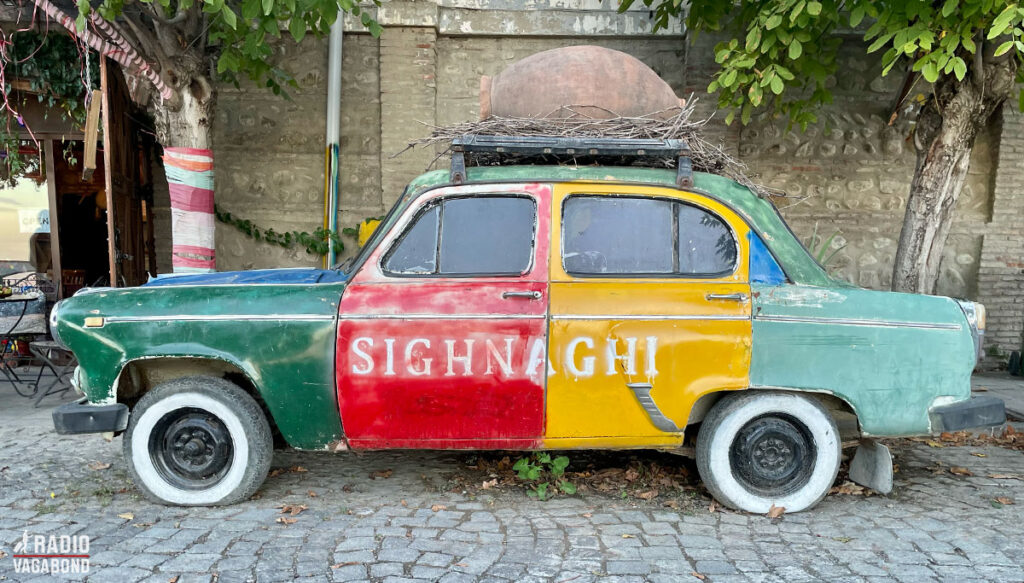
This is our first episode from Georgia, focusing mostly on its capital, Tbilisi. But don’t worry, we’ve got plenty more coming, including wine tastings and exploring the incredible Georgian countryside. Today, let’s kick off with Tbilisi’s charms.
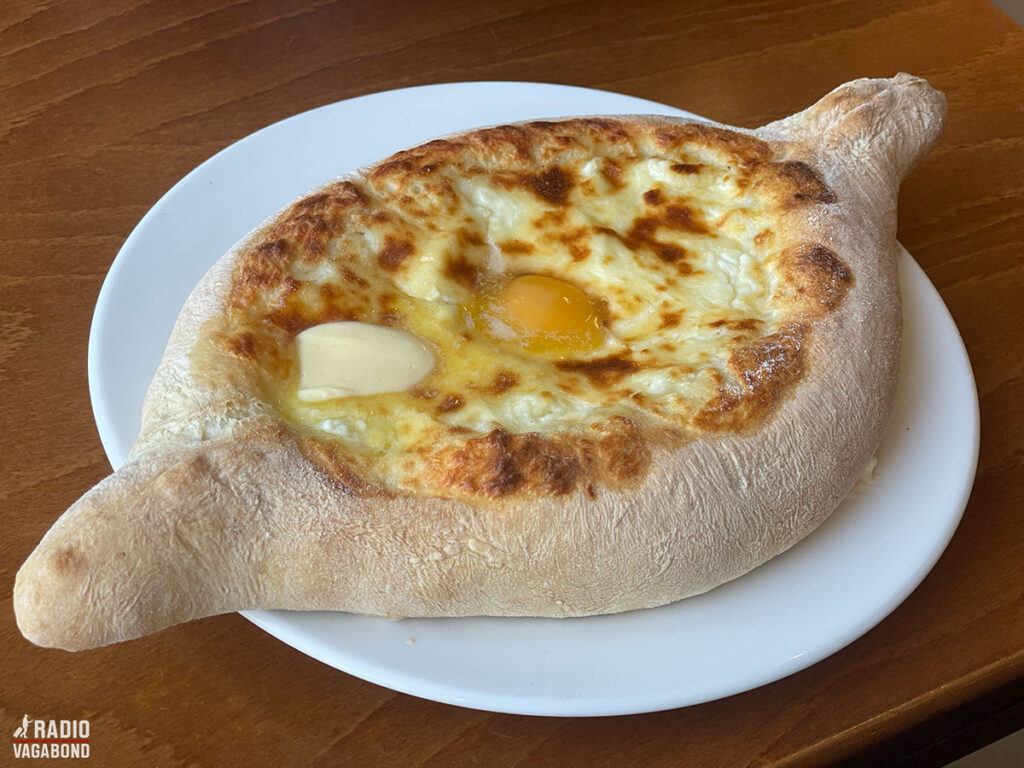
Khachapuri:
The Dish You Didn’t Know You Needed
One of the first things you’ll hear about when you visit Georgia is the food – and Khachapuri is the king of Georgian cuisine. It’s essentially cheese-filled bread, but that description really doesn’t do it justice. Picture this: a piping hot, boat-shaped loaf of bread stuffed with gooey cheese, a raw egg yolk, and a dollop of butter. Stir it all together and get ready for a mouthful of rich, cheesy goodness.
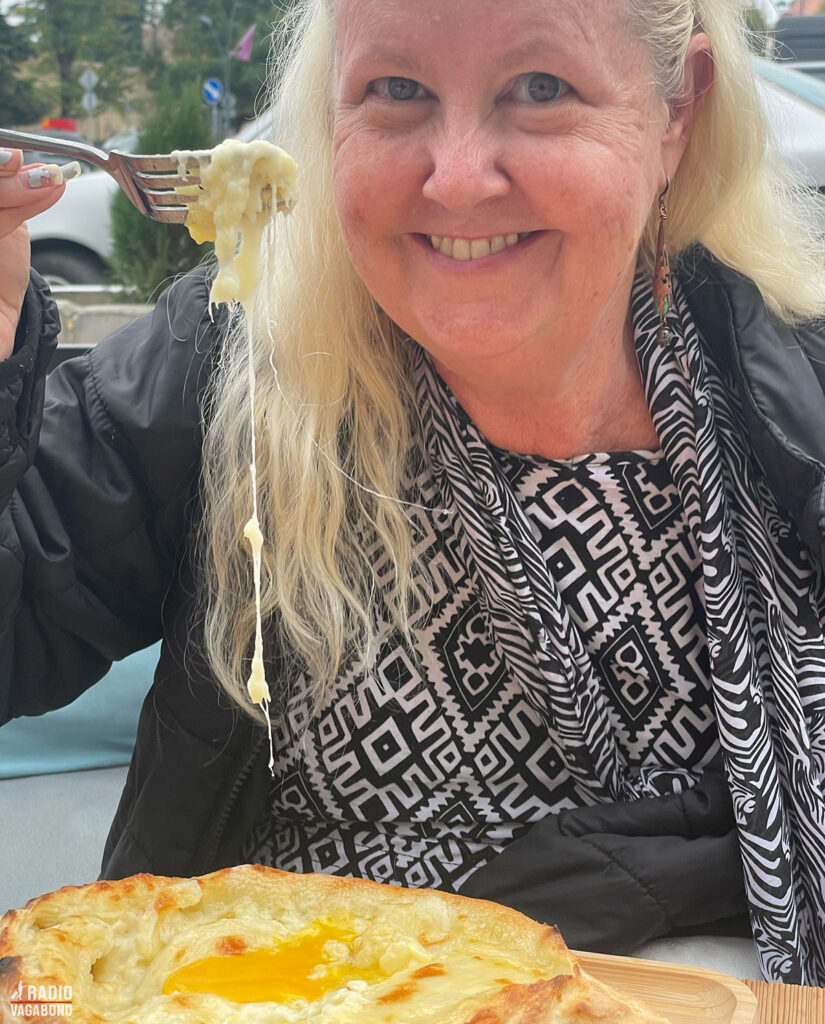
We had the Adjaruli Khachapuri version, and let me tell you, it’s a meal that’ll make you reconsider any previous thoughts you had about cutting carbs. But who cares about calories when it tastes this good?
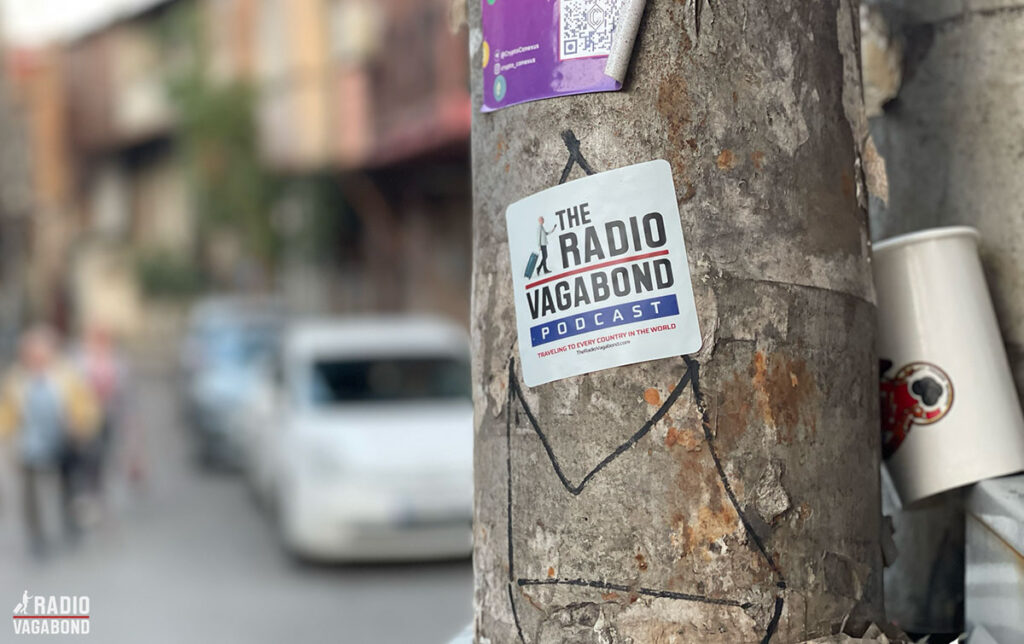
The Cradle of Wine
We just came from Azerbaijan “The Land of Fire”, so I was wondering if Georgia also has a nick name. And it turns out they do. They call it “The Cradle of Wine” and they’ve been making wine the same way for thousands of years, and it’s pretty unique.
Instead of using barrels or tanks, they use these huge clay pots called qvevri. These aren’t just sitting in a winery either – they’re buried underground. It keeps the temperature nice and cool and lets the wine ferment naturally. And later we’ll go visiting one of these wineries, see where they burry the pots and share a few glasses with the wine maker.
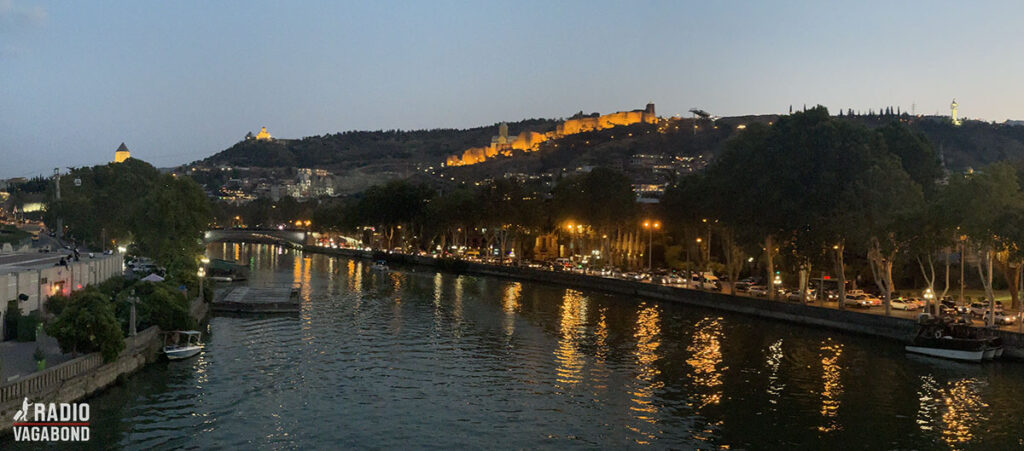
Previously on The Radio Vagabond
You might remember that we left Azerbaijan in a hurry after Cynthia was in a traffic accident – basically, escaping the corrupt police even though she did nothing wrong. And that she needed a check-up at a better hospital than the one we were at in Baku, Azerbaijan. Well, she did, and a lot happened on that front. In fact, that’s what most of our first week in Georgia was spent on. More about that next week.
FACTS ABOUT Georgia
Location:
Alright, first things first – we’re not in Georgia, USA. No Atlanta here. We’re in Georgia, the country, sitting right between Eastern Europe and Western Asia, in the South Caucasus. Russia’s up north, Turkey and Armenia are down south, Azerbaijan is hanging out to the southeast, and to the west, we’ve got the Black Sea.
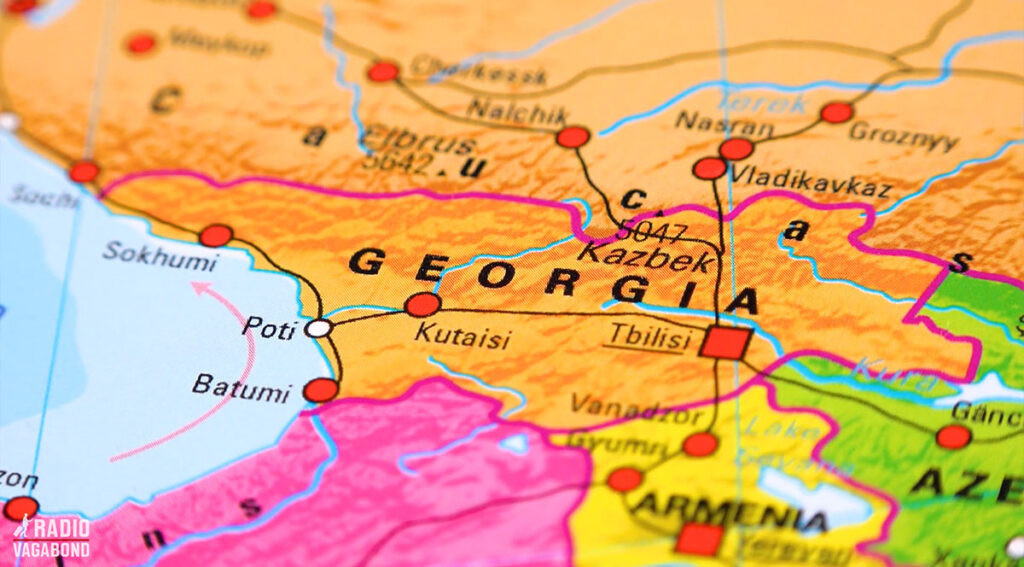
Size and Population:
Georgia is slightly smaller than Ireland and slightly bigger than West Virginia. It covers 69,700 square kilometers (that’s about 26,900 square miles) with a population of around 3.7 million people. So yeah, fewer than many cities, but with plenty of room to explore.
Official Language:
The language here is Georgian, and it’s not just the spoken part that’s unique – they’ve got their own alphabet. Forget about Latin letters; they’ve been using a script with 33 letters since the 4th or 5th century. So, you might struggle a bit reading street signs, but in the bigger cities like Tbilisi, English works fine, especially with the younger crowd. And if you know Russian, you’re in luck – a lot of older Georgians can speak that too as a former Soviet Republic.
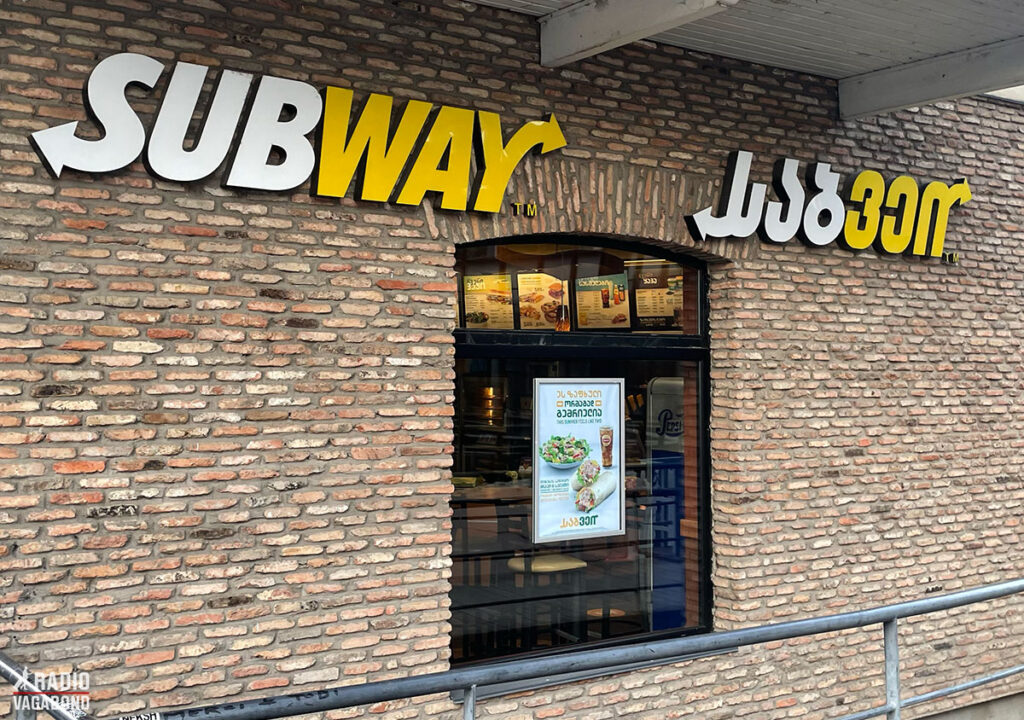
Democracy:
Georgia is officially a democratic republic. Elections? Yeah, they have them. Free and fair? Well, that’s still up for debate, just like we saw in Azerbaijan. They’re working on it, but it’s not exactly a perfect system yet.
Economy:
Georgia’s doing alright. It’s considered an upper-middle-income country, but don’t expect the same living standards you’d find in Western Europe. The economy leans heavily on agriculture, tourism, and services, and with a GDP per capita of about $5,000, it’s in the same ballpark as Armenia or Tunisia.
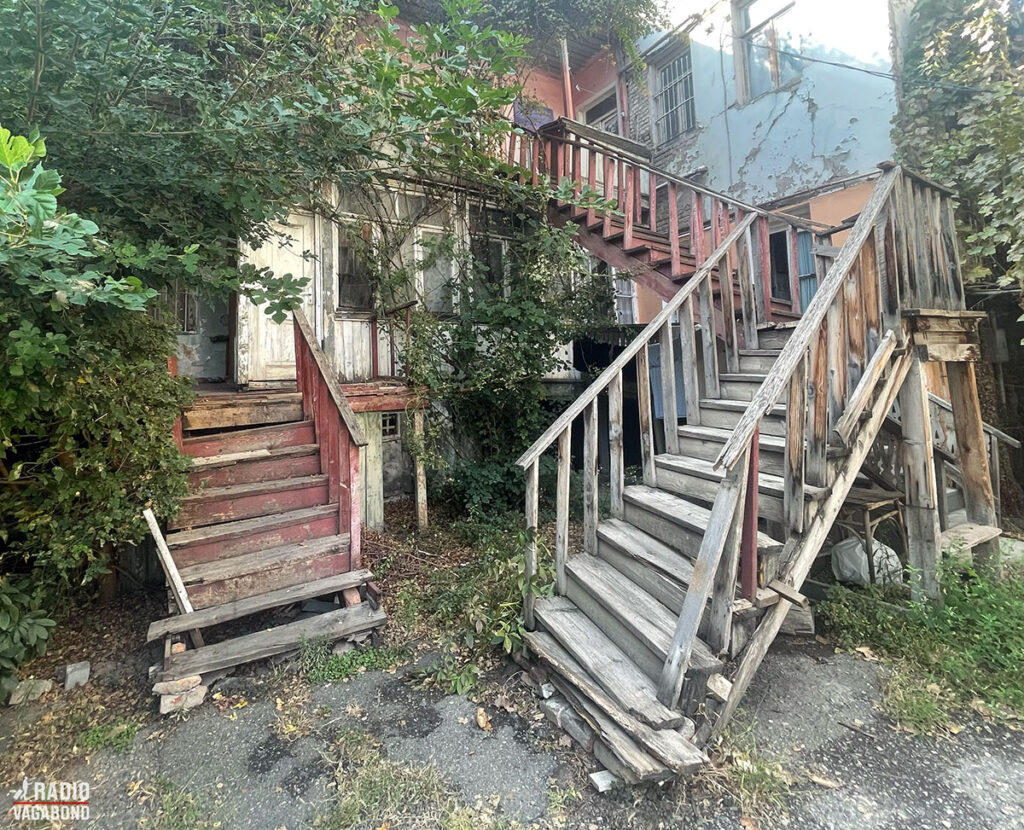
Religion:
Most people here follow Georgian Orthodox Christianity – about 83% of the population. So, churches and monasteries are a big part of the culture and landscape.
The Flag
The Georgian flag is pretty cool – it’s called the Five Cross Flag. Big red cross in the middle, four smaller crosses in the corners, all on a white background. The crosses represent Georgia’s long Christian history, and it’s a flag you’ll see proudly flying everywhere.
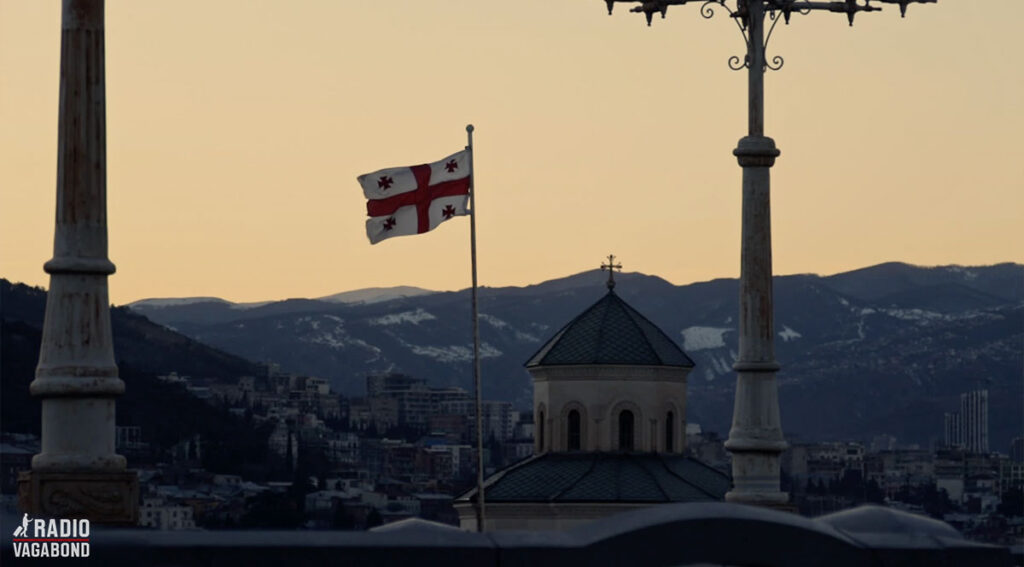
Famous People
You know who’s from Georgia? You might not believe this – but it’s Joseph Stalin. Yep, the Soviet dictator himself. He ran the Soviet Union for decades, cracked down on political opponents, and was responsible for the deaths of millions. And he was an innocent little baby right here in Georgia.
Local Food
Let’s talk more about food. Georgians know their way around a kitchen, and you’ve got to try some of their classic dishes. There’s Khinkali, those tasty dumplings stuffed with meat or veggies, and Pkhali, a kind of veggie pâté. And of course, the superstar we’ve already had – Khachapuri – that delicious cheese-filled bread. It’s all comfort food heaven.
Good Local Beer:
Georgians like their beer too. If you’re up for trying some, go for Natakhtari or Argo. But honestly, wine is the real showstopper here. Georgian wine is made using ancient methods, and we’ll be diving into a wine tasting later, so stay tuned for that.
Famous Proverbs
Georgians have some great proverbs. One is, “He who has a mother will not perish,” which shows how important family is here. And another, “The guest is from God,” highlights their legendary hospitality. So yeah, if you visit, expect to be treated like royalty.
WHO ARE YOU?
Please spend five minutes taking a the survey – tell me a bit about who you are and what you would like more or less on here on The Radio Vagabond.
Georgia and Its Neighbours:
Georgia’s relationship with its neighbours is, well, let’s just say, a bit complicated.
Catholic Marriage with Azerbaijan
Let’s start with Azerbaijan, as we joked about in the Azerbaijan episode, they are like stuck in a long-term Catholic marriage. They’re like that neighbor you don’t always get along with, but you tolerate because, well, you’re stuck living next door. They share the connection to Europe, pipelines, and economic ties. No matter what, they have to stick together, even though they’ve had their fair share of squabbles.
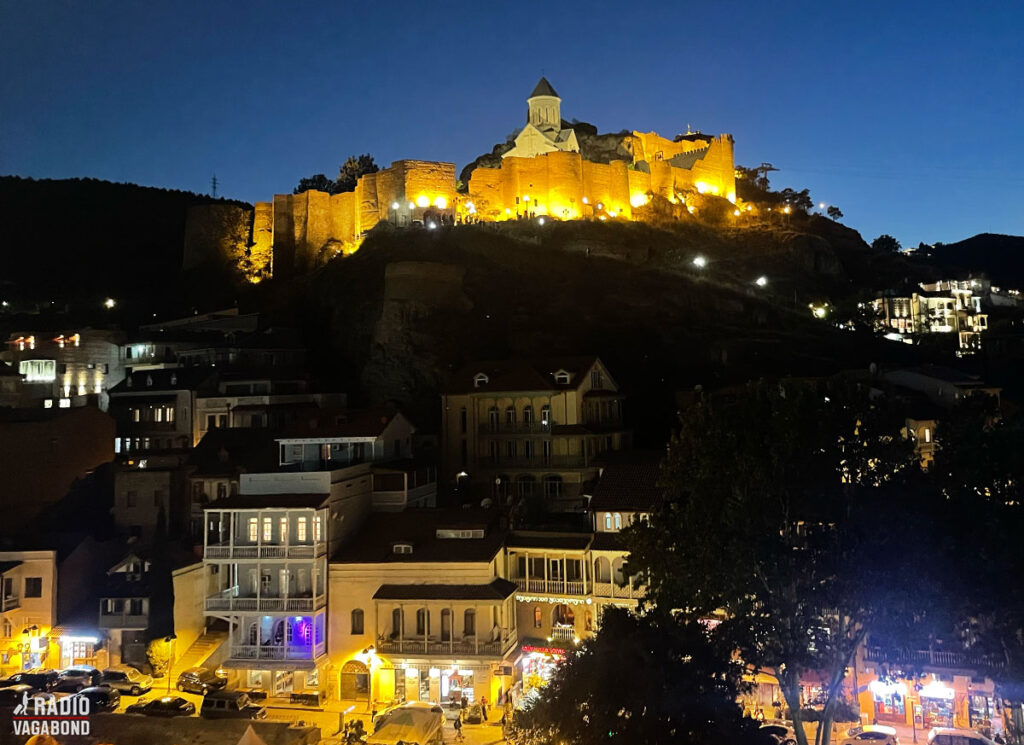
Not BFF with Russia
Moving to Russia. Georgia and Russia are definitely not BFFs. They’ve had some serious tension over the years, especially with conflicts like the 2008 war, when Russia backed separatist regions. It’s a love-hate relationship (mostly hate) with a lot of history. Also, they were a part of the former Soviet Union, and we all have a sense of what Putin wants.
Get along with Armenia
Then there’s Armenia. These two get along pretty well. Both are Christian countries in a largely Muslim region, so they find common ground. But like any friendship, they’ve got their quirks, especially when it comes to foreign alliances. Plus, they’re in this catholic marriage with Azerbaijan, who’s mortal enemies with Armenia.
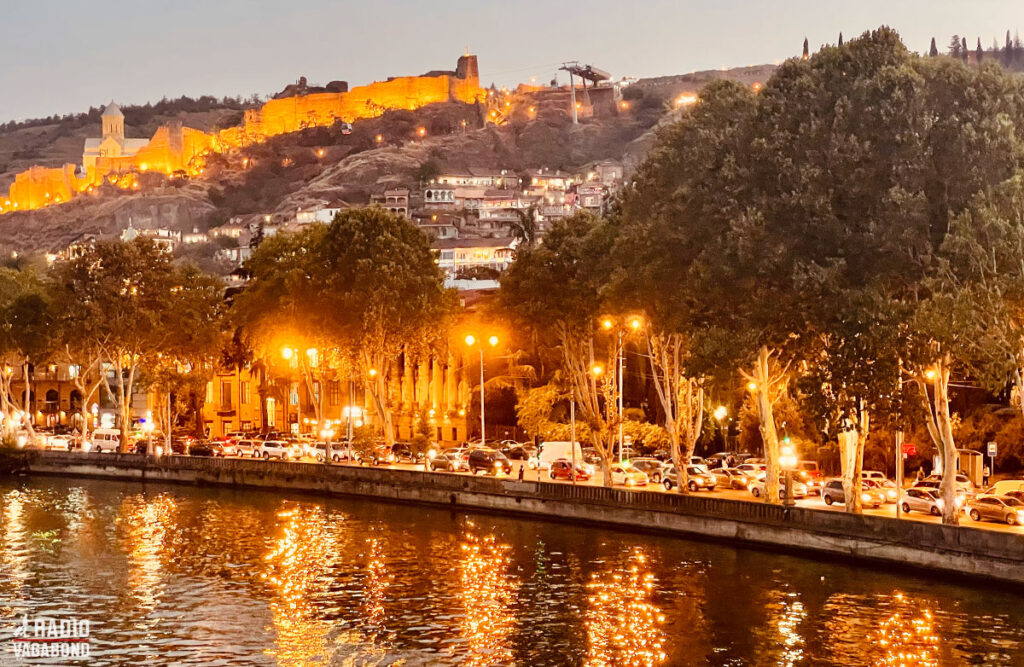
Careful Dance with Turkey
And finally, Turkey – Georgia’s window to the West. They share strong trade relations and have a good thing going, but it’s always a careful dance. After all, Turkey also has its own complex ties with other neighbors like Armenia.
In short, Georgia’s relationships are a bit of a balancing act, but like in any family, they find a way to keep the peace… most of the time!
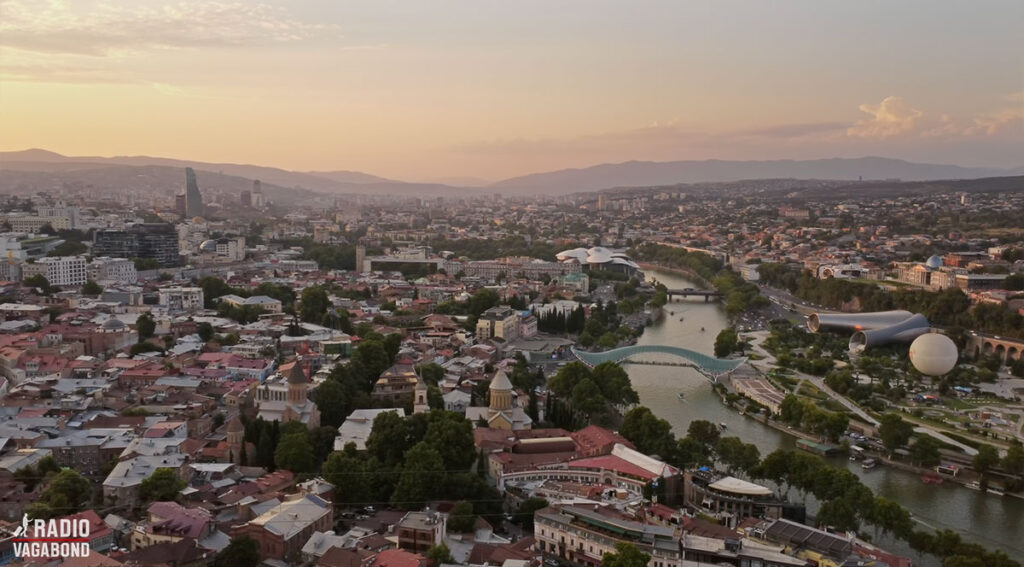
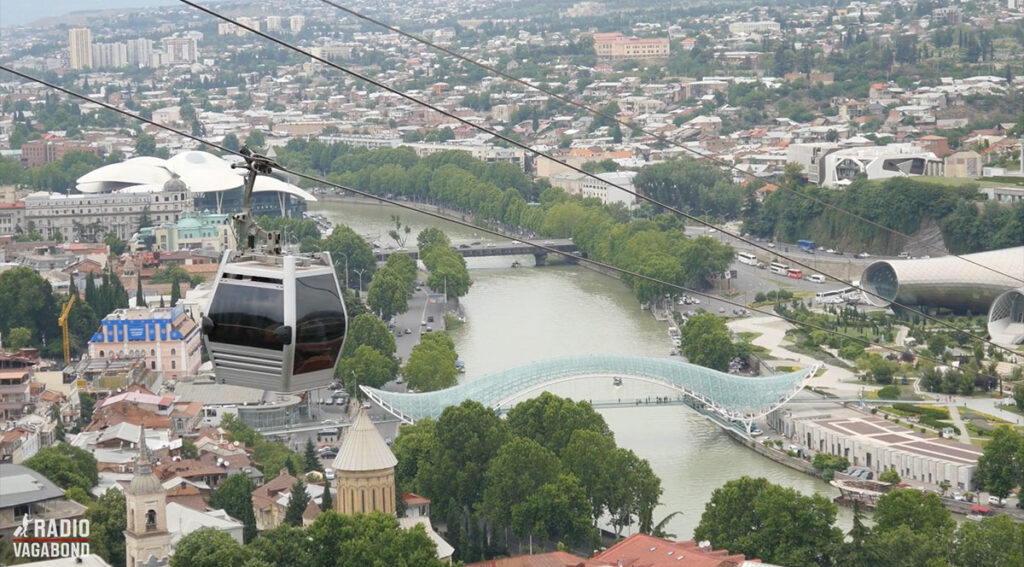
Timeless Tbilisi:
Where History Meets Hip Vibes
We’re in the capital Tbilisi. It’s one of those cities that sneaks up on you. It’s got this fascinating mix of old and new, where ancient cobblestone streets and medieval buildings sit right next to ultra-modern glass structures. You can feel the history here – this city has been through everything, from Persian invasions to Soviet rule, but it’s still standing strong.
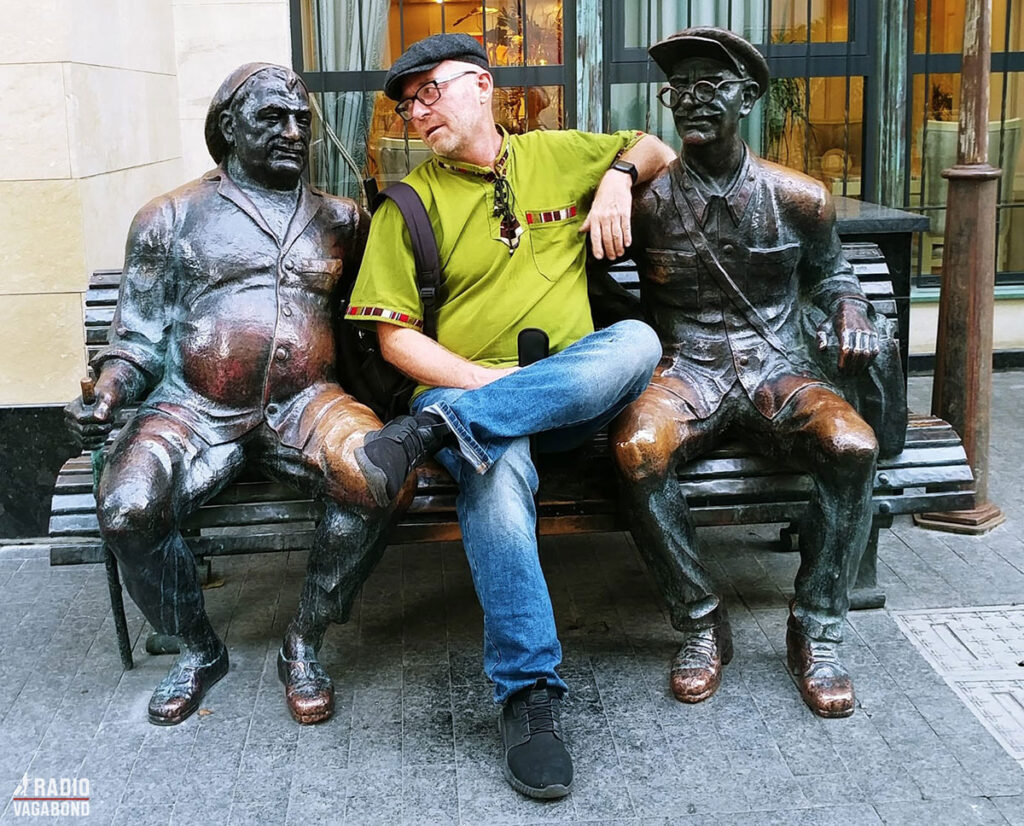
The streets are full of colourful houses with wooden balconies, cosy cafés, and hidden courtyards. And then there’s the cool vibe – it’s got this artsy, laid-back energy, with street art, funky bars, and a buzzing nightlife scene.
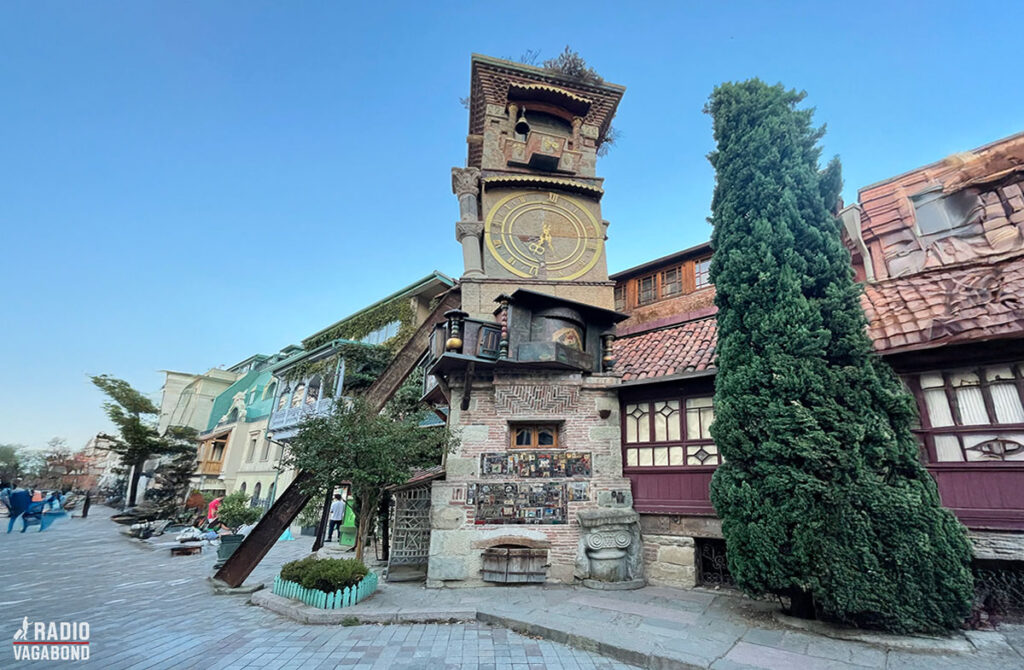
The best part? The views. Tbilisi is built on hills, so wherever you go, there’s always a spot where you can stop and soak in the sights, with the old fortress on one side and the modern cityscape on the other. It’s the perfect place to wander aimlessly and just get lost in its charm.
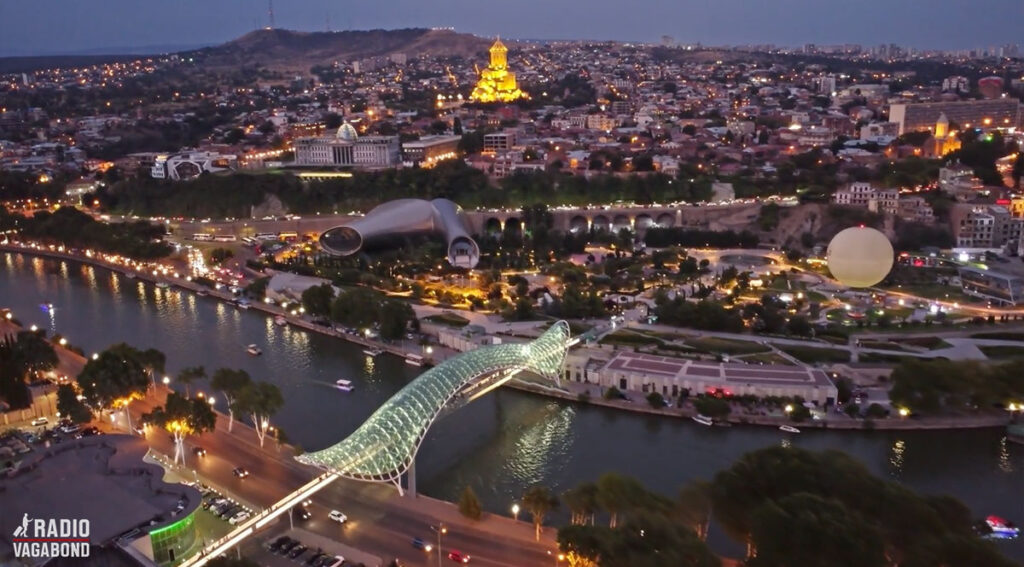
Mother of Georgia:
Come for the wine, stay for the swordplay
So, we took the cable car in Tbilisi up from Rike Park to the top of Sololaki Hill – not just for the views but to meet the one and only “Mother of Georgia”.
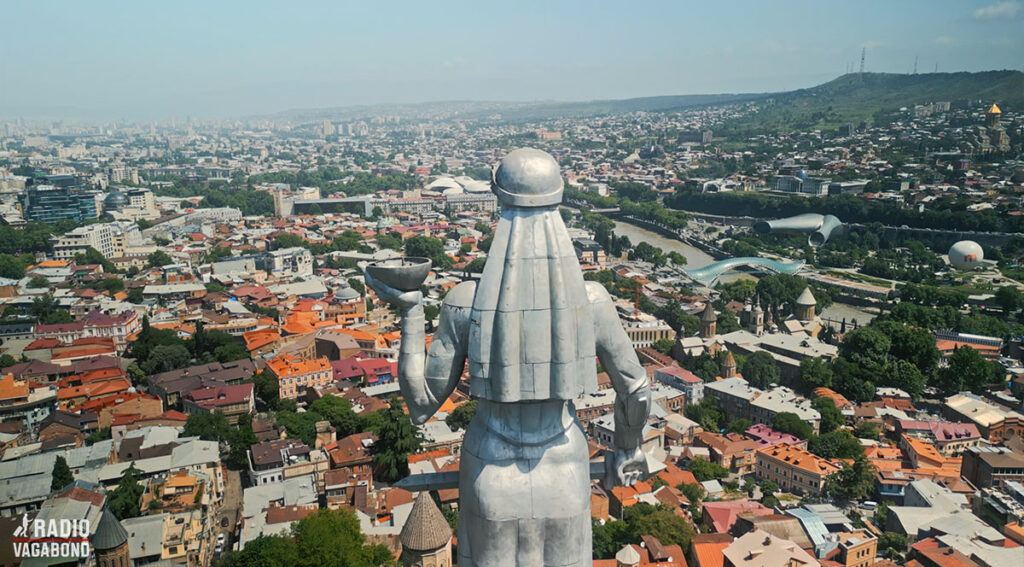
In the top of the hill, we’re face-to-face with this 20-meter-tall aluminium woman standing on a hill, looking like she means business.
Mother of Georgia definitely looks like she could handle herself in a bar fight – and then offer you a drink afterward. She’s just standing there with these muscular arms and biceps that say, “I pump iron… and yes, it’s heavy.”
And her chest? Let’s just say, she’s not shy about it – like she’s saying,
“I’m strong, but I can still show some Georgian hospitality.”
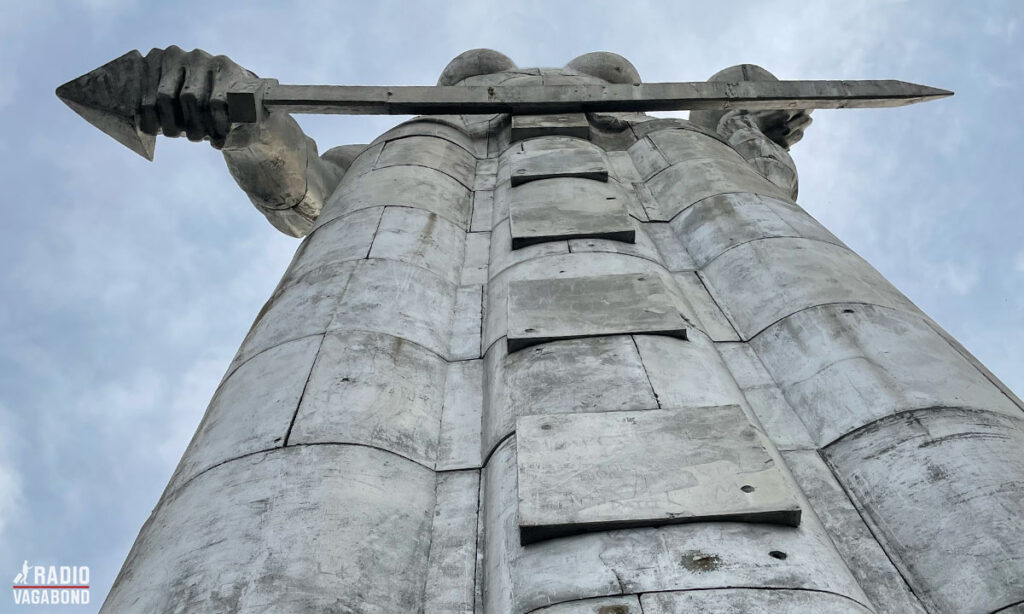
And then her face has this little smirk, almost like she’s daring you to try something, but deep down, you know she’s just being cheeky. Between the sword in one hand and the giant wine bowl in the other, it’s a pretty clear message:
“If you’re a friend, you’re in for a good time. If not, well… you might want to rethink your life choices.”
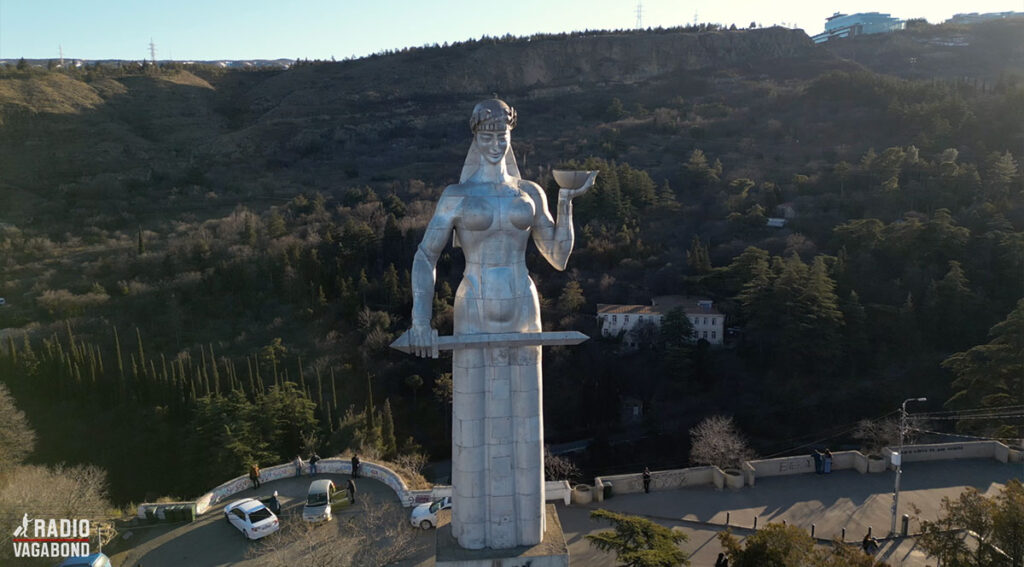
She’s an awesome blend of strength, pride, and that welcoming, slightly intimidating vibe that only Georgia can pull off!
Plus, the views from up there? Absolute stunner. You get the whole city, the river, and even the mountains in the distance. Definitely worth the ride!
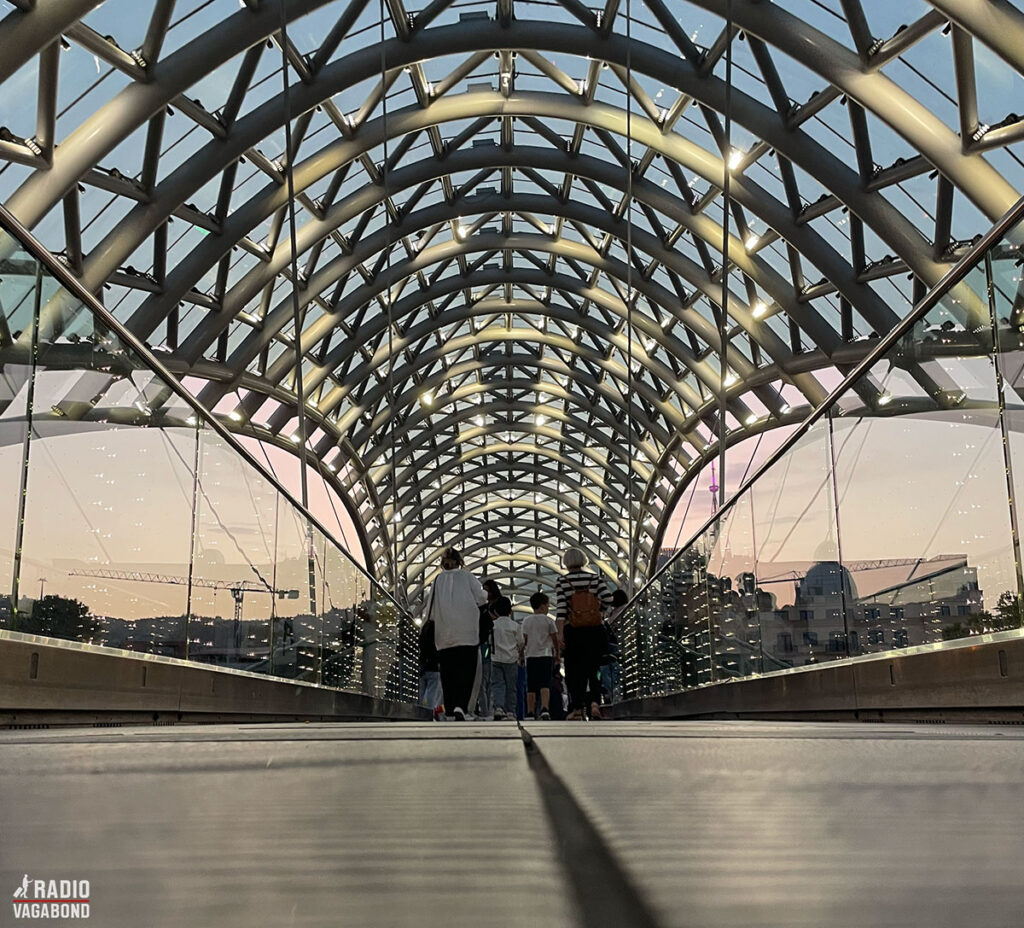
Futuristic Flair:
Crossing Tbilisi’s Iconic Peace Bridge
The Peace Bridge is one of the city’s most modern and eye-catching landmarks. Spanning the Kura River, it connects the old and the newer parts of Tbilisi. And the bridge looks like something out of a futuristic sci-fi movie. It’s all glass and steel, with this unique, almost undulating wave-like structure.
The bridge is lit up with thousands of LED lights that make it glow at night, like a giant spaceship just touched down in the middle of Tbilisi. Walking across it, you’ll get some killer views of the river and the city on both sides, but it’s really the bridge itself that steals the show.
It opened in 2010 and has another cool feature. The lights on the bridge spell out messages in Morse code, symbolizing peace, and unity. So, it’s got that deeper meaning while also being a favourite spot for selfies and evening strolls.
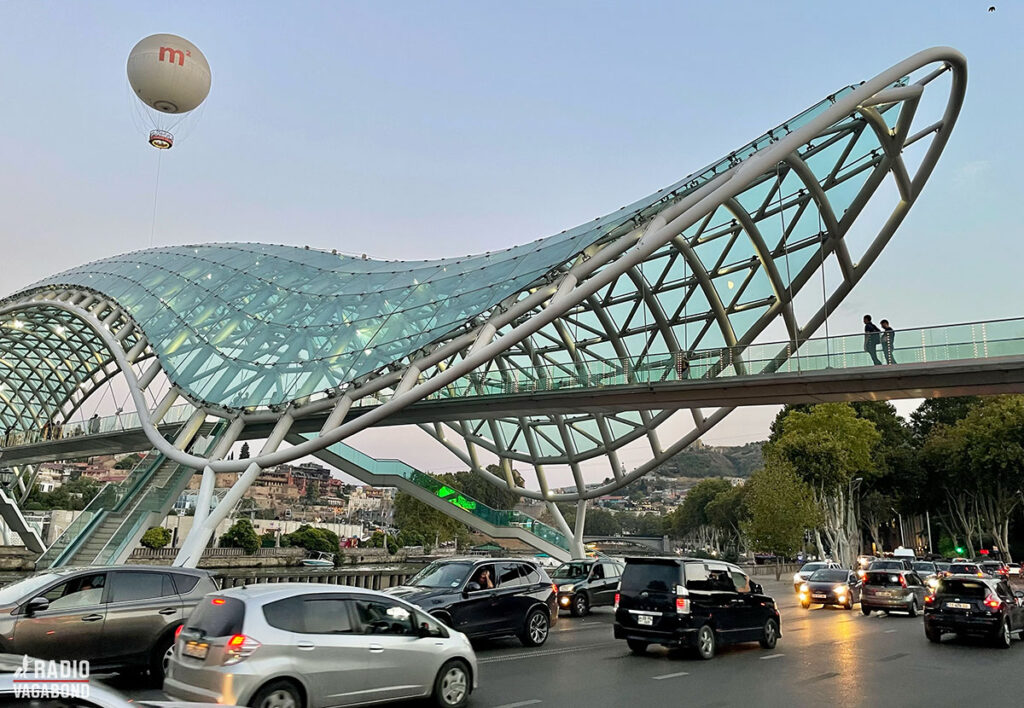
Freedom Square:
Tbilisi’s Historic Heart and Symbol of Independence
And then there’s the main square of the city. It’s one of Tbilisi’s most important and historically rich spots. It’s right in the heart of the city and has seen everything from protests to celebrations over the years. Back in the day, it was known as Yerevan Square, but like many things in this region, the name changed with the political winds. During Soviet times, it was Lenin Square – complete with a giant statue of Lenin, of course.
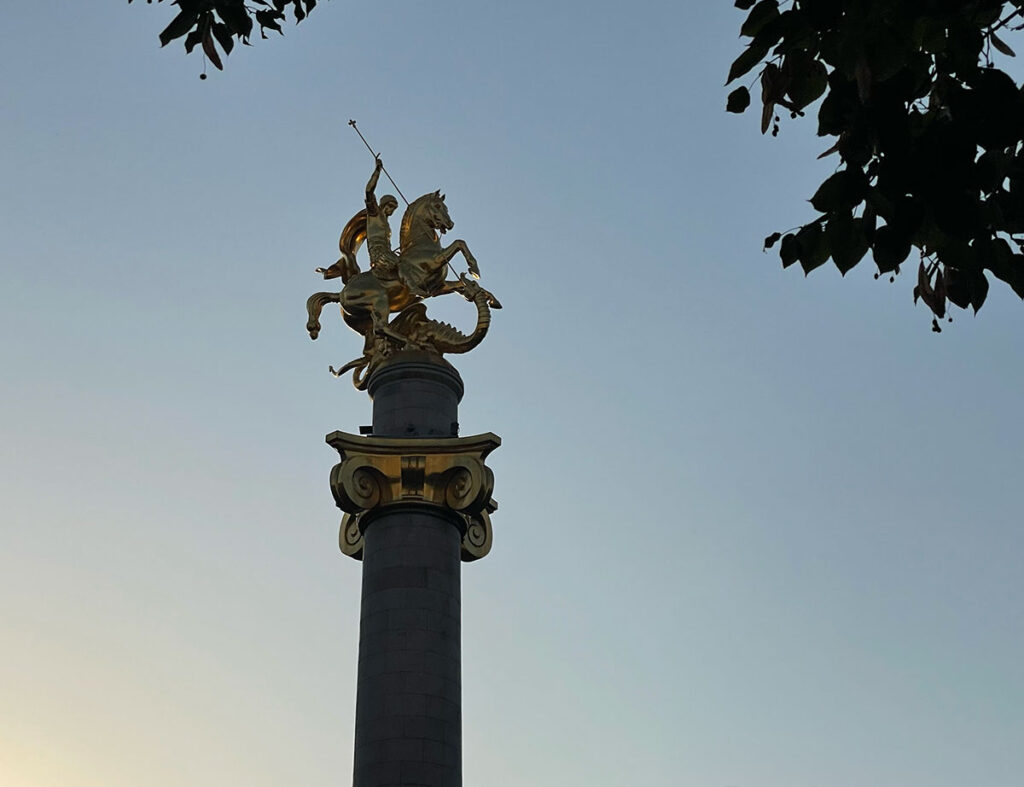
Now, it’s called Freedom Square or Liberty Square and is the symbol of Georgia’s journey toward independence and democracy. In the center of the square on top of a 35-meter-tall pillar stands a massive golden statue of St. George, Georgia’s patron saint, slaying a dragon.
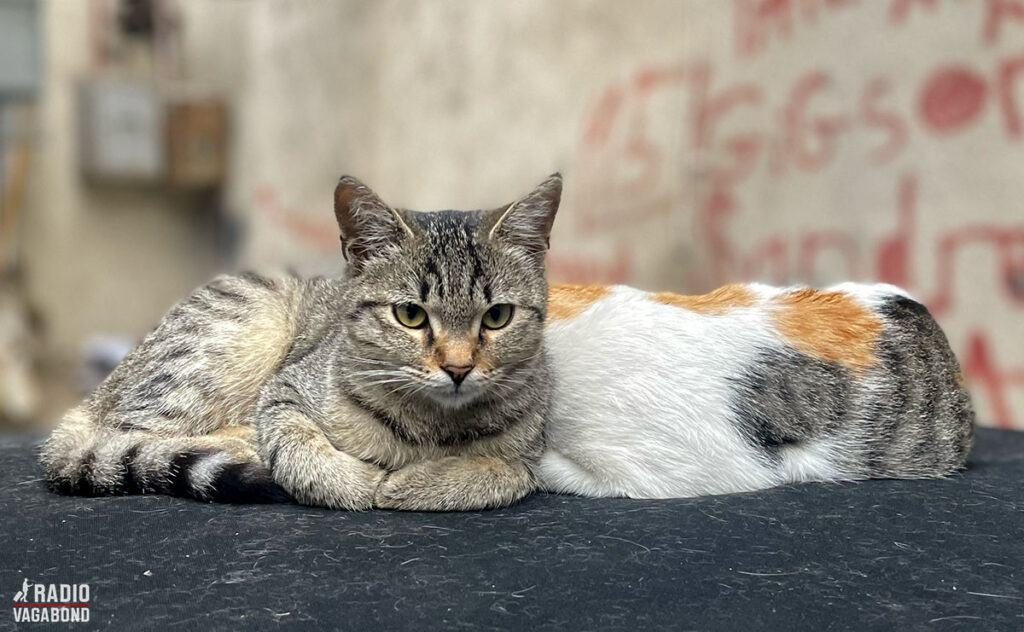
The square itself is in the Old Town of Tbilisi – a hub of activity, with busy streets surrounding it and a constant flow of people. It’s a great place to just soak up the vibe of the city, with a mix of old Soviet-era buildings and new, modern shops and cafes.
THE WEATHER
If you’re wondering when to visit Georgia, the best time would be during spring (April to June) or fall (September to October).
In the summer, it can get pretty hot, especially in the lowlands, but up in the mountains, you’ll find cooler temperatures.
Winter is great if you’re into skiing because the Caucasus Mountains offer some amazing slopes, but for a mix of city life and nature, stick to spring or fall.
Plus, you’ll avoid the heavy tourist crowds, not that Georgia is overrun by tourists anyway.
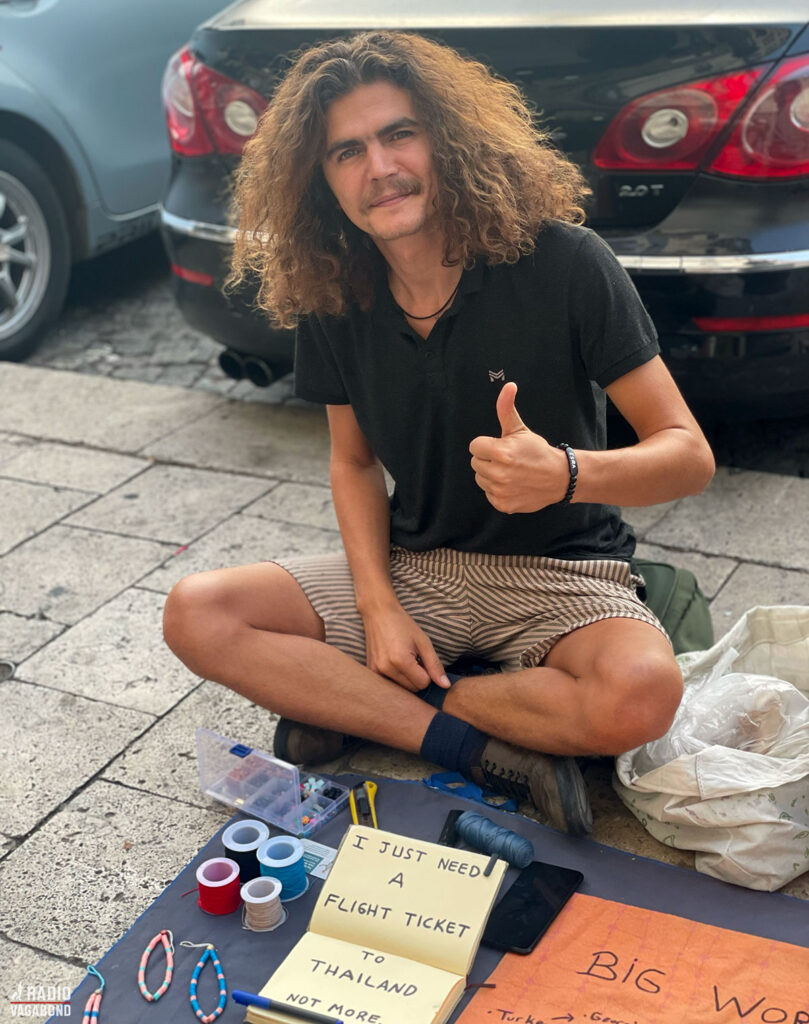
Crossing Paths:
A Chat with a Turkish Traveler with Big Dreams
While wandering through the streets of Tbilisi, I met Burak Nefesoğlu, a young Turkish traveler who was on a mission to visit most of the world. We had a great conversation about what motivates people to travel.
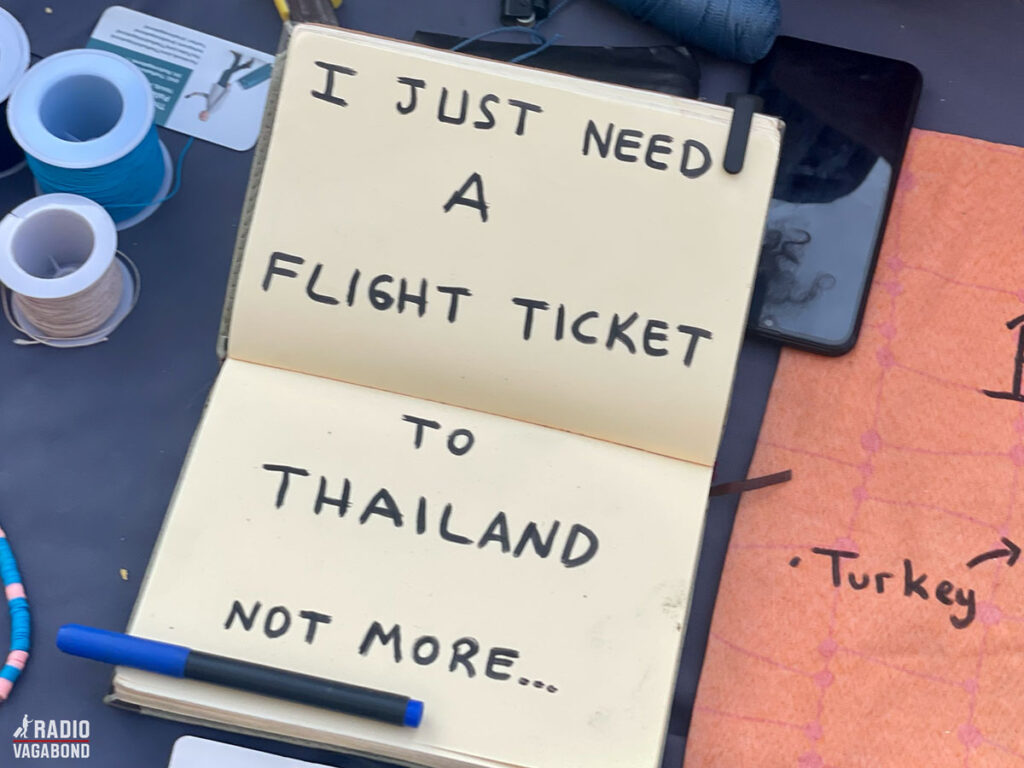
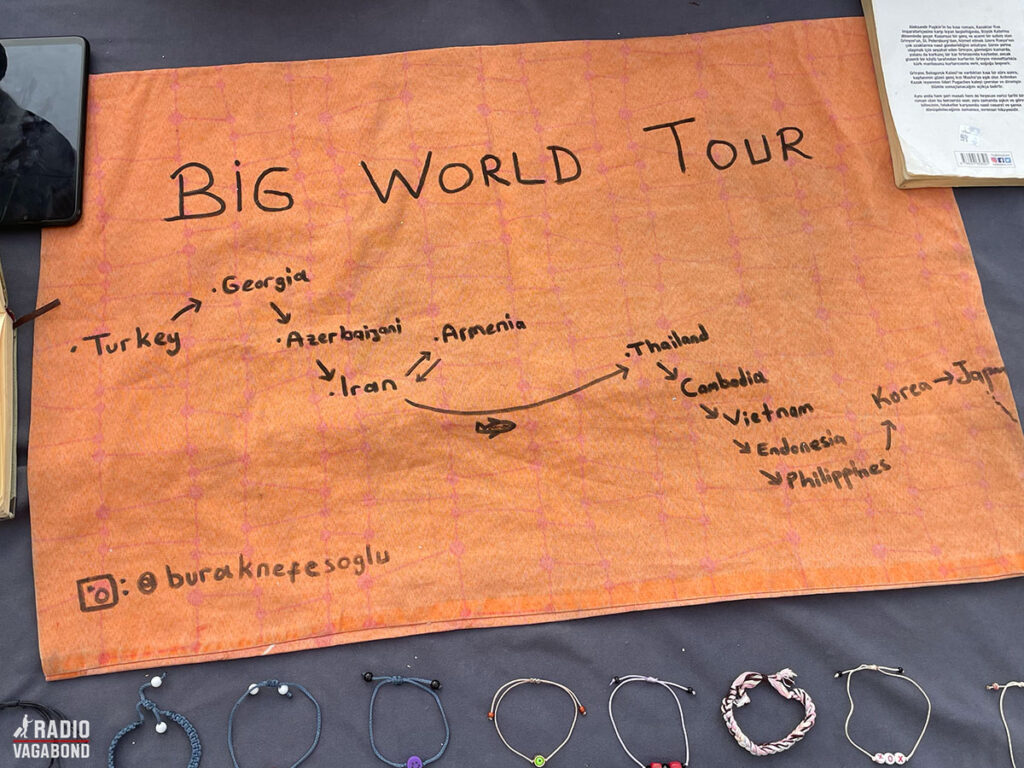
It’s always interesting to meet fellow travelers, especially those with such ambitious goals. He told me about how he plans and funds his trip. This conversation got me thinking about how travel can open up so many new perspectives – and sometimes, it’s the people you meet along the way who make the journey even more memorable.
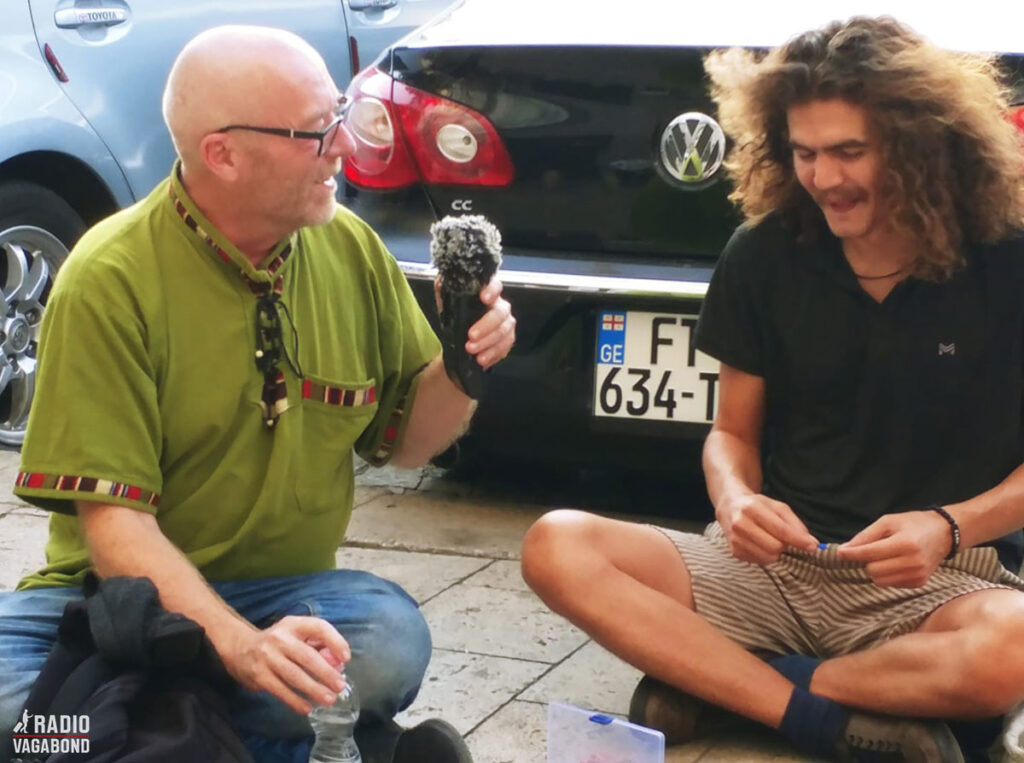
Coming Up:
That’s it for now. Next Tuesday we continue the road trip to look for an iconic church, and get all the way to Russia. And then we go for a wine tasting in a small traditional winery.
Plus we have an extra special episode, not so much about the country but all about Cynthia’s operation at a hospital here. It seemed better than perfect but a few months later she found out that it was anything but that.
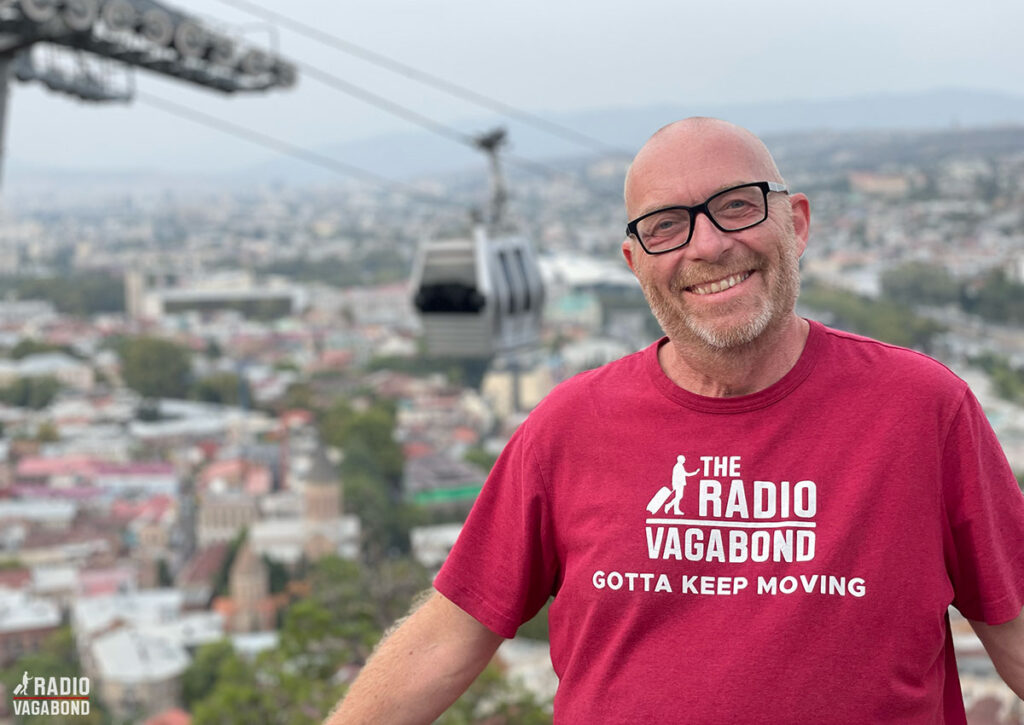
My name is Palle Bo and I gotta keep moving. See you.
I WOULD LIKE TO HEAR FROM YOU!
Please tell me where are you and what are you doing as you listen to this episode? You can either send me an email on listener@theradiovagabond.com, go to TheRadioVagabond.com/Contact or send me a voice message by clicking on the banner.

Either way, I would love to hear from you. It’s so nice to know who’s on the other end of this.
SPONSOR
A special thank you to my sponsor, Hotels25.com, who always provide me with the best, most affordable accommodation wherever I am in the world.
Hotels25 scans for prices on the biggest and best travel sites (like Booking.com, Hotels.com, Agoda and Expedia) in seconds. It finds deals from across the web and put them in one place. Then you just compare your options for the same hotel, apartment, hostel or home and choose where you book.
When you book with Hotels25, you get access to 5,000,000 hotel deals. And it’s “best price guaranteed.”
PRODUCED BY RADIOGURU
The Radio Vagabond is produced by RadioGuru. Reach out if you need help with your podcast.

